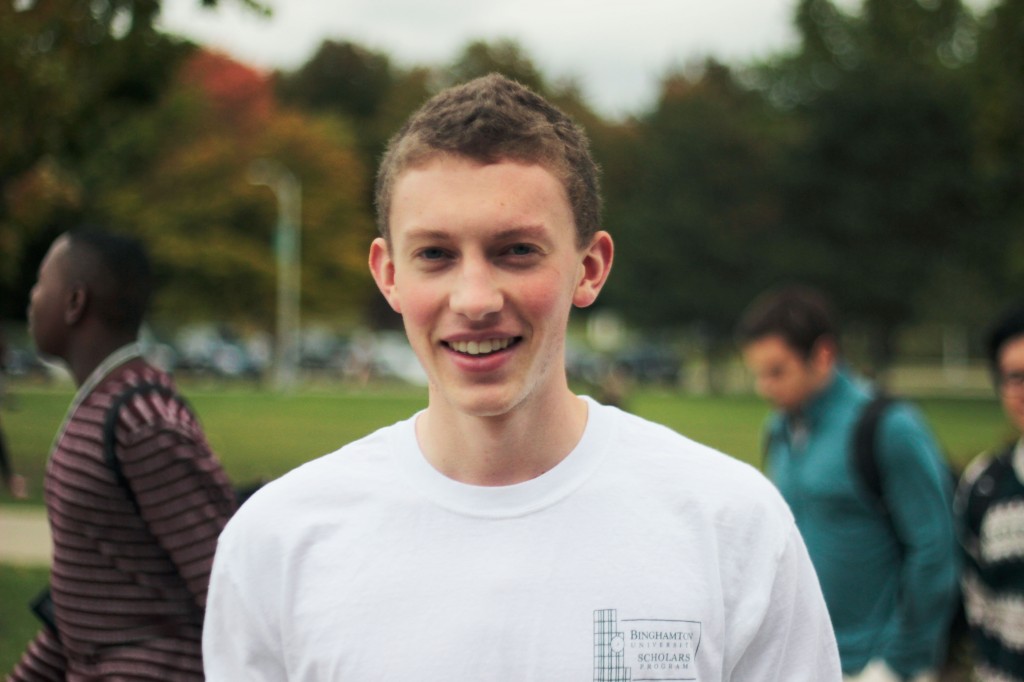
There may be a reason out-of-state relatives have never heard of Binghamton University — according to one student’s research, not all universities have equal representation in the media.
Jack Fischer, a sophomore double-majoring in computer science and math, conducted a study that analyzed characteristics of universities mentioned in the New York Times. He found that private universities were named more frequently than public universities of equal caliber.
“When I was college searching, one of the things I did was look up news about the different universities,” Fischer said. “I noticed that for Binghamton’s size, which is relatively large and the fact that it’s fairly well known, there was not much being said about it.”
In his research, Fischer looked at variables such as rank, size, proximity to New York City and whether or not the school was public or private. The data showed that public schools were mentioned significantly less than private schools.
Fischer began his research, which took him months to complete, during the fall of 2013.
“I just had a feeling that I was on to something,” Fischer said.
The study was conducted roughly five times, as Fischer tweaked the methodology and worked with BU political science professor David Cingranelli and mathematics professor Xingye Qiao.
After months of research and review, Fischer asked public administration professor David Campbell to advise him on what to do with the completed study.
“He needed to find an outlet,” Campbell said. “He needed to find a place that would take this idea seriously and where he could engage the public on the issue.”
Fischer said if the media changed the way public universities — such as BU — are represented, students would better recognize the quality of their school and utilize it.
“It’s like you’re going somewhere that’s not even recognized for the full potential that it has,” Fischer said.
Rebecca Conrad, a senior majoring in psychology, said that public universities lack the attention that private ones receive and, as a result, potential students believe that state schools are not on par.
“I think this is a great school,” Conrad said. “But people don’t really pay attention to it because it says Binghamton and SUNY.”
This past summer, Fischer got a job at the New York Times doing data science and approached the Times’ public editor, Margaret Sullivan. Sullivan, who acts as an independent liaison between the paper and its readers to handle matters of journalistic integrity, reviewed his work and published it on her blog.
“The public editor is the best possible place that [the research] could have gone,” Campbell said. “Getting the public editor of the New York Times to take a college sophomore’s analysis seriously as a critique of the Time’s coverage of higher education is more than a notion, it’s a big big deal.”
Fischer said that he hopes the Times will look into the study and respond accordingly, but is skeptical of results.
“I think they are very passionate about doing things right,” Fischer said. “But I don’t know how this will turn out.”


